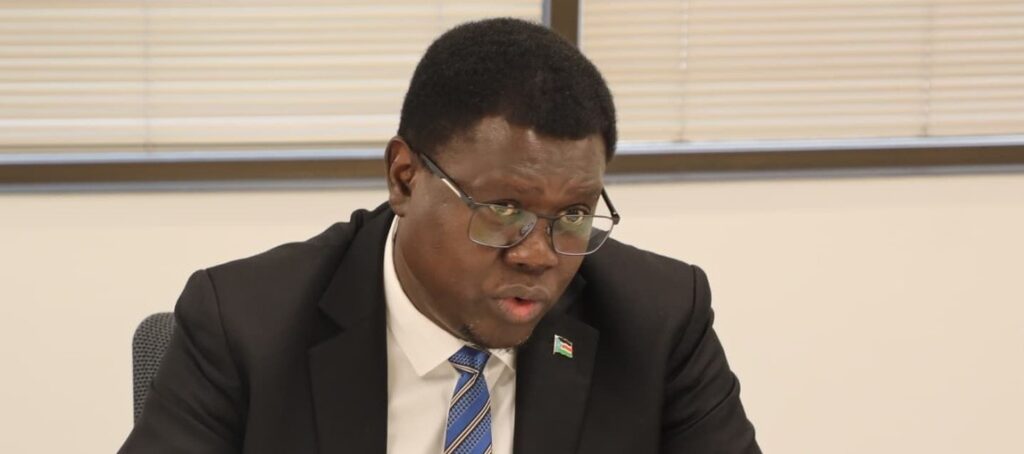South Sudan’s Foreign Minister, Monday Semaya Kumba, returned to Juba on Tuesday after meetings in Washington aimed at lifting U.S. visa restrictions and attracting American investment, though analysts caution that progress hinges on sweeping reforms.
The U.S. revoked visas for South Sudanese passport holders in April, citing the government’s refusal to accept deported citizens. Secretary of State Marco Rubio accused South Sudan’s transitional government of failing to process repatriations “in a timely manner.”
The dispute escalated after South Sudan initially blocked the deportation of a Congolese national before relenting. This month, the country accepted eight men deported from the U.S., only one of whom was South Sudanese.
Kumba, appointed in April after his predecessor was dismissed amid the diplomatic row, said he held talks at the State Department with senior officials, including a senior Trump administration adviser and the deputy assistant secretary for African affairs.
“The discussions were cordial, and my proposals were well-received,” Kumba said, adding that he sought to “reset bilateral relations” and promote investment in sectors like oil, agriculture, and infrastructure. He also met with World Bank and IMF representatives.
The minister’s trip included a stop in Ethiopia, where he discussed trade, education, and regional cooperation.
In April, South Sudan’s embassy hired U.S. lobbying firm Scribe Strategies & Advisors—led by Republican-linked former official Joseph J. Szlavic—under a $500,000 contract to improve its image in Washington and arrange meetings with policymakers.
Progress Hinges on Reforms
Baboya James, a South Sudanese policy analyst, said Kumba’s outreach was a necessary first step but warned that U.S. engagement remains conditional.
“The Americans aren’t just looking for promises—they want concrete action on governance, human rights, and the peace agreement,” James said. “Without progress on these issues, even the best diplomatic efforts will hit a wall.”
He noted that U.S. investors remain wary of South Sudan’s instability and corruption. “The security situation scares away business. No one will pour money into oil or agriculture when contracts can be overturned overnight and officials aren’t held accountable,” he added.
James emphasized that the U.S. prioritizes anti-corruption measures and political inclusivity. “Washington won’t lift sanctions or encourage investment while South Sudan’s leaders are under travel bans and arms embargoes. The message is clear: release political detainees, open civic space, and implement the peace deal.”
The lobbying contract, he said, might open doors but won’t replace domestic reforms. “You can’t spin your way out of sanctions. The U.S. wants to see real change—starting with how South Sudan treats its own people.”
More than a decade after its independence in 2011, South Sudan remains plagued by internal conflict and fragile institutions.
The country has yet to hold a credible national vote, citing funding shortages and logistical hurdles—reasons that many see as enabling President Salva Kiir’s prolonged tenure.




